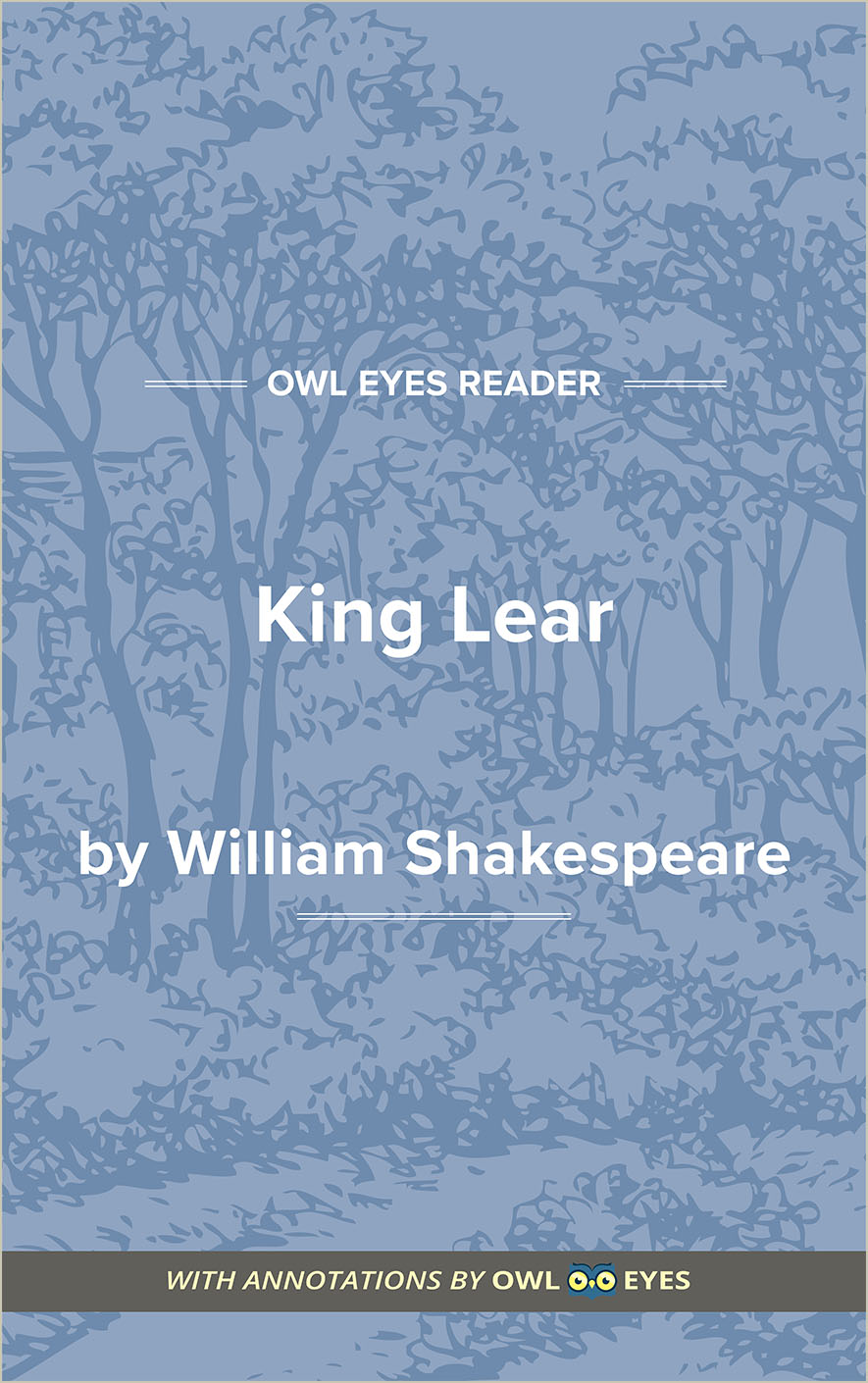Analysis Pages
Metaphor in King Lear
A metaphor is a comparison without using “like” or “as.” Metaphors are used in Shakespeare's works to describe certain characters and their motives. Much like how the characters in King Lear invoke the gods to restore balance to the chaotic social and political order, they also compare other characters to the gods to emphasize a specific character trait or tragic flaw. King Lear is rife with many other metaphors, but of note are those that compare Goneril and Regan to animals, suggesting their savage and brutal natures.
Metaphor Examples in King Lear:
Act I - Scene I
🔒"The vines of France and milk of Burgundy Strive to be interest..." See in text (Act I - Scene I)
Act I - Scene IV
🔒"Dost thou know me, fellow? ..." See in text (Act I - Scene IV)
Act II - Scene IV
🔒"That sir which serves and seeks for gain, And follows but for form,(80) Will pack when it begins to rain, And leave thee in the storm,..." See in text (Act II - Scene IV)
"Nature in you stands on the very verge Of her confine:..." See in text (Act II - Scene IV)
Act III - Scene I
🔒"Fie on this storm!..." See in text (Act III - Scene I)
Act III - Scene III
🔒"The younger rises when the old doth fall...." See in text (Act III - Scene III)
Act IV - Scene I
🔒"plague..." See in text (Act IV - Scene I)
"I stumbled when I saw:..." See in text (Act IV - Scene I)
Act IV - Scene VI
🔒"How fearful And dizzy 'tis, to cast one's eyes so low!..." See in text (Act IV - Scene VI)
"deficient sight..." See in text (Act IV - Scene VI)
"Through tattered clothes small vices do appear;(180) Robes and furred gowns hide all. Plate sin with gold, And the strong lance of justice hurtless breaks:..." See in text (Act IV - Scene VI)

